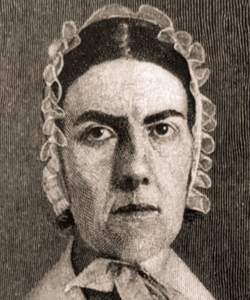Angelina Emily Grimké (American National Biography)
Scholarship
Increasingly drawn to a more vigorous form of antislavery activism, [Angelina Grimké] wrote a letter in 1835 to William Lloyd Garrison, editor of the radical abolitionist magazine The Liberator, encouraging him in his work. To her dismay, Garrison published the letter on 19 September. It caused a storm of protest, not only among the slaveholders of her own state but among the Philadelphia Friends, including her sister, who urged her to recant. But by now the demure southern belle was thoroughly committed, and instead of recanting she wrote a 36-page pamphlet, Appeal to the Christian Women of the South (1836), calling on her sex in the strongest terms to "overthrow this horrible system of oppression and cruelty, licentiousness and wrong." With this and a subsequent pamphlet, An Appeal to the Women of the Nominally Free States (1837), urging reform in the North, she became publicly linked with the abolition movement. As the first white southern woman to speak up forcefully against slavery, she was enthusiastically welcomed by Garrison and his followers. She was also bitterly reviled in South Carolina, where her pamphlets were publicly burned.
Dennis Wepman, "Grimké, Angelina Emily," American National Biography Online, February 2000, http://www.anb.org/articles/15/15-00819.html.



